The last time we tried a filtering experiment using dirty water, we used kitchen roll ( kitchen towel ) as the filter. Today, we tried something a little different.
We looked in the garden for three things that might make good filters and chose large stones, small stones and sand. We discussed which we thought would be the best filter and decided the sand would probably work best as it has the smallest gaps between grains.
Filtering Experiment
What you need
- Large stones
- Small Stones
- Sand
- Containers
- Funnel
- Dirty water - we just added some soil from the garden to some tap water.

Instructions
- Place the large stones in the funnel, hold it over a container, and pour the water over the stones.
- Add the small stones to the top of the large stones and repeat. Does the water look clearer?
- Add the sand and repeat again.
Our results were not as clear as I had hoped. You can see that the water filtered by all three materials is slightly clearer than the first two, but some sand seems to have dropped through the funnel.
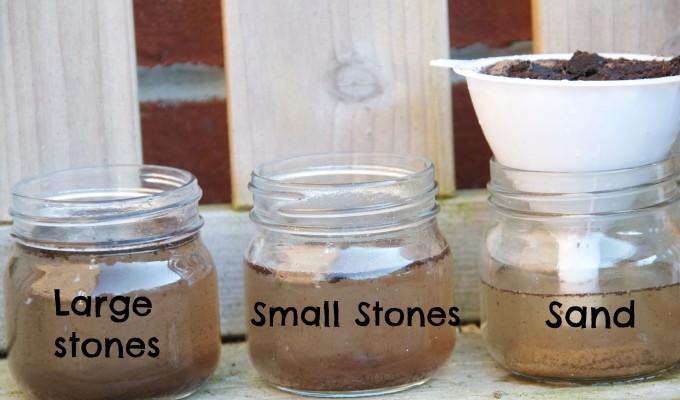
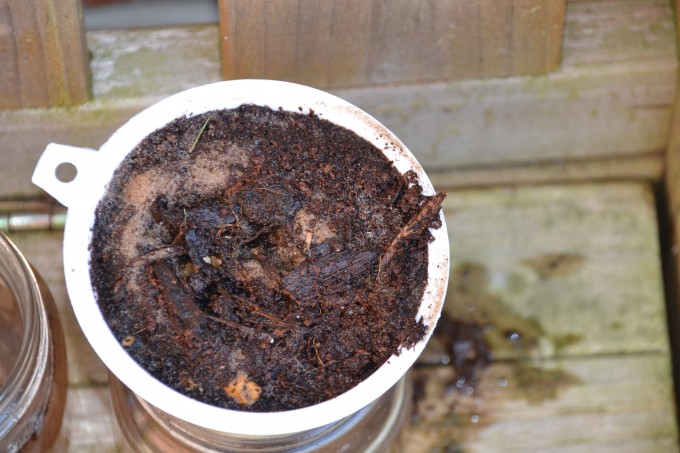
How to improve
Next time we're going to use a bigger funnel so we can have more of each material to make the filtering better.
This should also stop the sand from dropping through into the water.
Do let us know if you try a filtering experiment yourself. We'd love to hear how you get on.
Suitable for Key stage 2 Science
Properties and Changes of Materials
Use knowledge of solids, liquids and gases to decide how mixtures might be separated, including through filtering, sieving and evaporating.
Last Updated on September 25, 2023 by Emma Vanstone
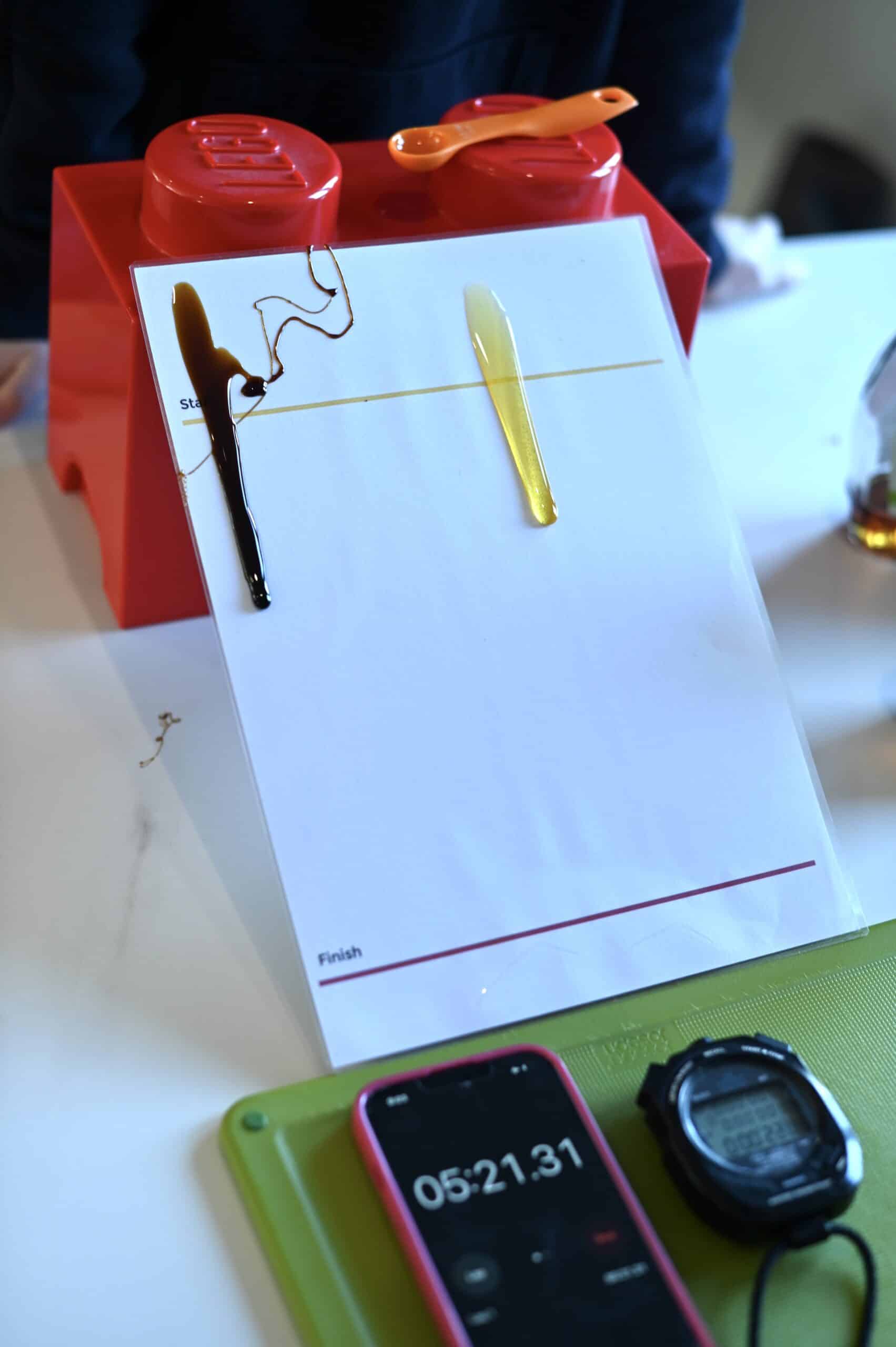
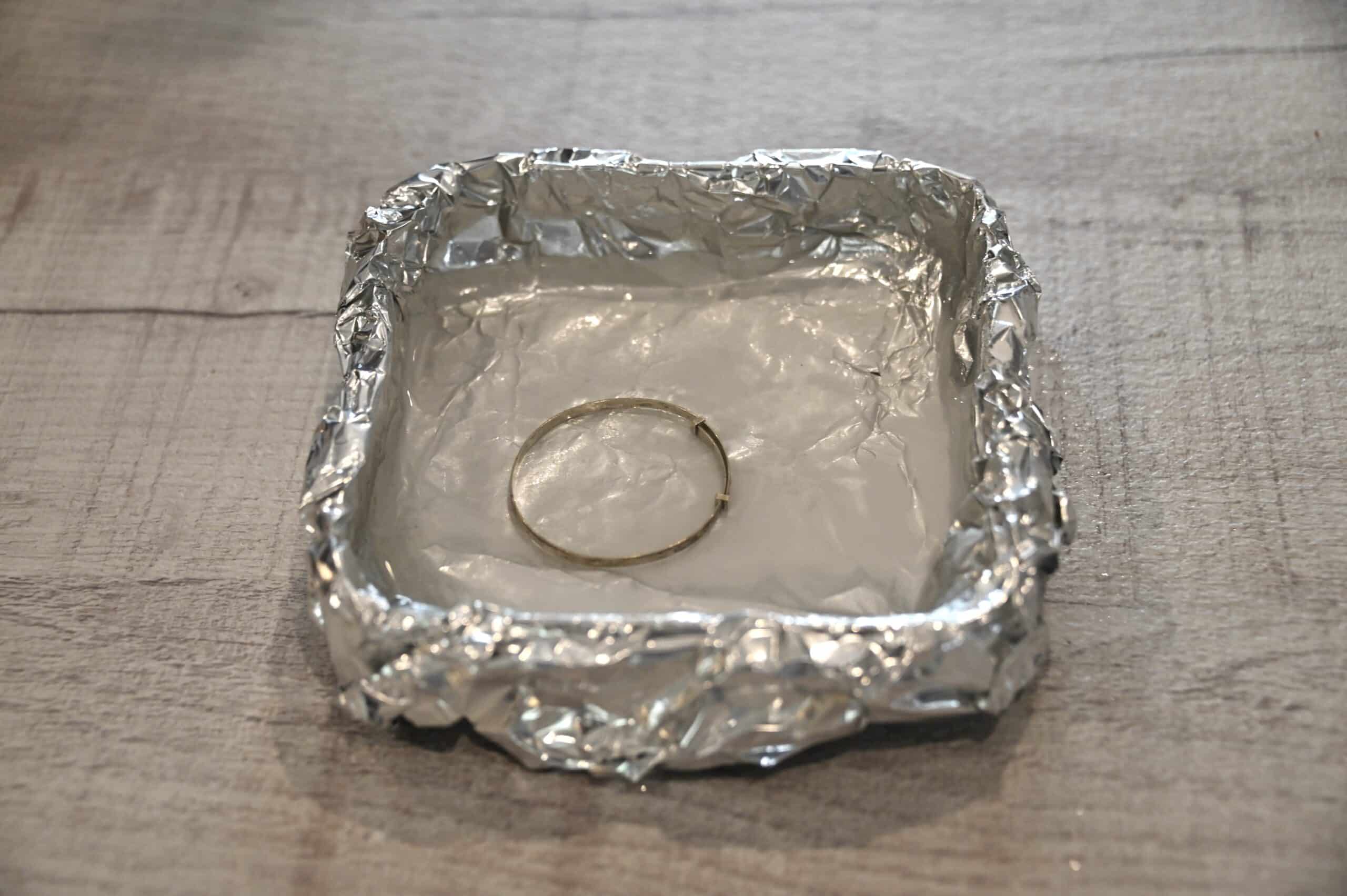
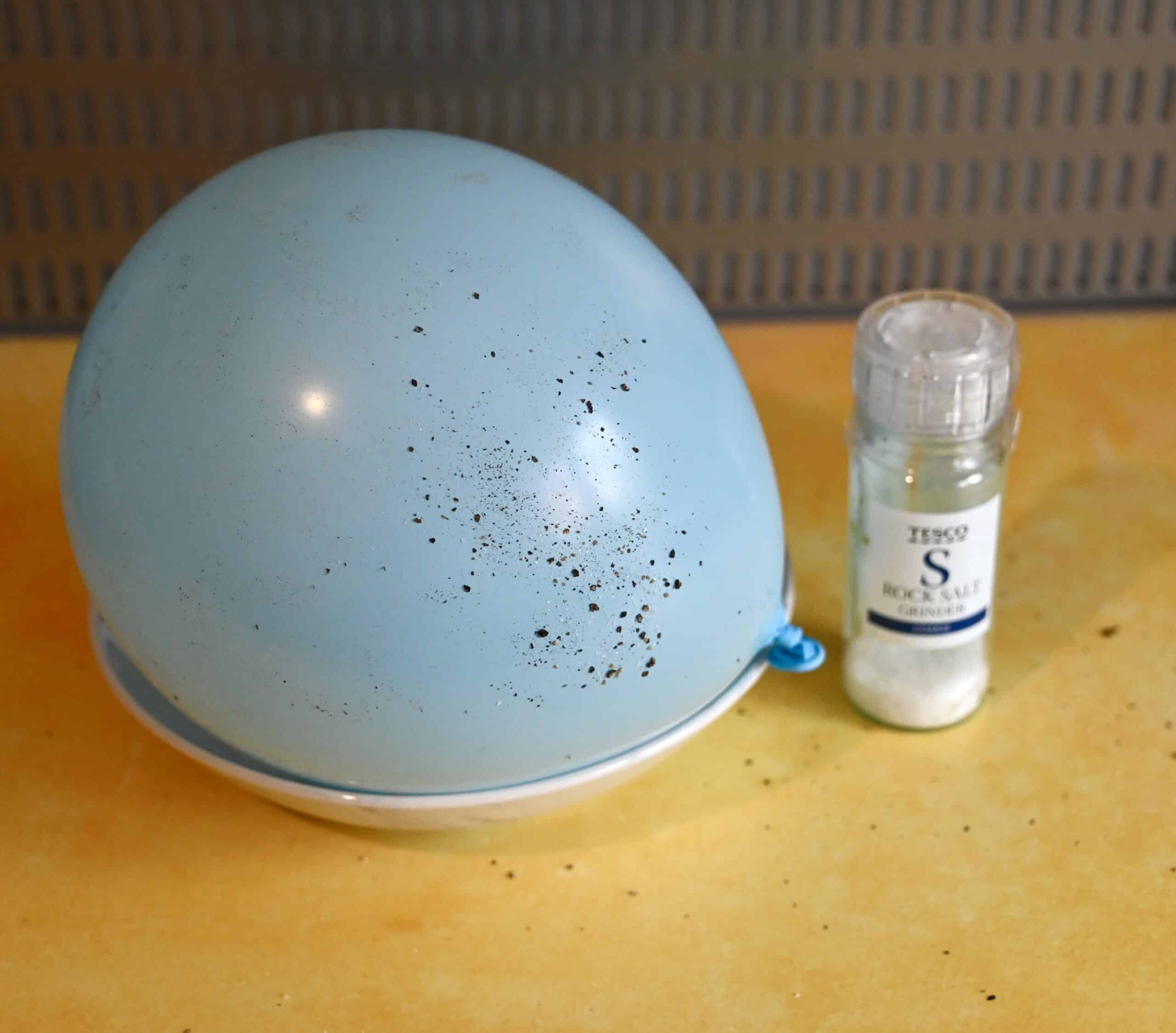
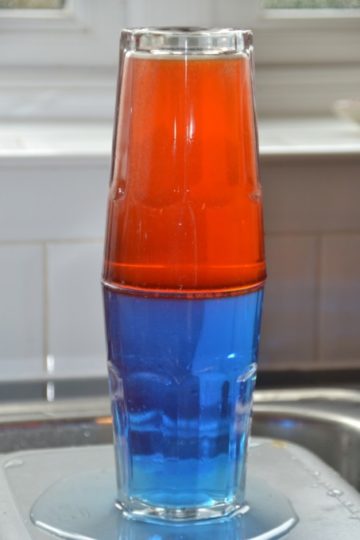
JDaniel4's Mom says
This would be great to try with my son. Thanks!
ScienceSparks says
Let us know how you get on 🙂
ScienceSparks says
It was a lot of fun! Let us know how you get on 🙂
sarahelisabeth says
How about using this system with a coffee filter in the funnel?We've tried re-filtering before which also helps.
I think we will try the combined idea!
ScienceSparks says
Thats a great idea, I will try that!
Natalie says
Very cool experiment. We definitely need to do some filtering experiments later this year!
ScienceSparks says
It was a lot of fun.